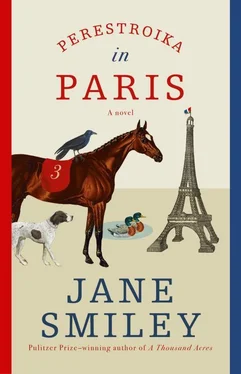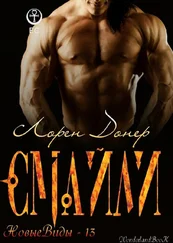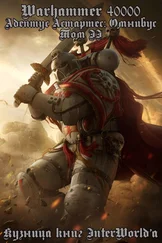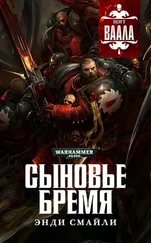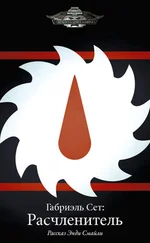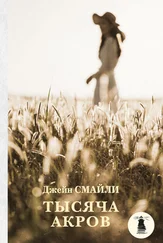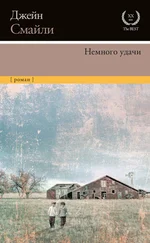And so they did, Frida suspiciously, Paras hungrily. Raoul flew ahead of them, swaying lightly in the breeze, maybe half a meter above Frida’s head and two meters in front of her. Frida carried the purse. Paras seemed to accept that the purse had become the dog’s responsibility. Raoul brought them to the road, to a low fence, less than a meter high. The approach was terrible, Paras thought. She was just attempting to gauge the footing when Frida pushed it open with her nose and went through. Paras followed her.
The path ran downward beside a high curving wall and was, in one place, quite narrow. But Paras caught some bites of grass, and took a drink from a small pond. The grass was short and not very tasty, so she tried a few leaves here and there. When the path widened, however, they came upon a rolling green prospect. Paras snorted. Raoul lifted his wings, stuck out his toes, and landed on a tree branch. He said, “I think I may say that this is the pride of my domaine . The humans have named it the ‘Palais de Chaillot.’ ”
“You own this?” Frida set down the purse.
“What is ownership these days?” said Raoul. “I oversee it. That is my only claim.” Then he said, “You said you were hungry?” He lifted his wing and gestured in a large semicircle, taking in the entire park. “The insect kingdom is yours for the asking, and, of course, small children and older adult humans are always dropping things as they wander in their aimless way around the greenery and the paths.”
Paras began grazing, but she was still careful to step around benches and bushes. Frida did not want to look hungry, but she was, so she checked under a few of the same benches and bushes without taking her eye off the purse, and she even got up on her hind legs and peered into a trash bag. Her reward was a half-eaten shish kebab wrapped in a pita. A human had taken a bite or two and tossed the rest, still in its paper, into the garbage bin, which was full, so the sandwich was right on top. She found it a nice change from cheese. Raoul hopped along the paths, snapping up this and that. When he got near the purse, he touched it with his beak. Frida was certain he would not be able to lift it, but even so, she said, “That’s the horse’s purse.”
Raoul pecked at it.
Frida walked over, picked it up, and carried it a few steps away, where she set it down and sat over it.
Raoul said, “Is this a precious object?”
“In a way.”
They stared at each other. Finally, Raoul said, “Ask yourself, do not Aves live free and clear of such things as possessions? What is a nest but a temporary assemblage of bits and pieces—of trash, if you will—collected and molded into a comfortable, but always ephemeral, dwelling? Most Aves live to see the world, not to claim it. Even territorial Aves, such as myself, make their claims as a gesture, merely to start an argument with other territorial birds. We live to fly. We live to argue. What is in the purse?”
“Money,” said Frida. “Lots of money.”
“Aves use money all the time.”
“They do?” said Frida. In all her life in Paris, she had never seen a bird pay for anything.
“I have a ten-euro note right in my nest. You get it nice and wet and press it for a bit, and it makes a superior bed. Sturdy, soft, smooth.”
“You found a ten-euro note lying around?”
“Yes. On a desk. Through an open window. In and out in a matter of moments.”
Raoul went back to pecking the border of the path, and soon enough came up with a caterpillar. He pecked it, tossed it, opened his beak, gobbled it down. Paras continued to graze. She was now just a dim figure in the darkness, but Frida could hear her. Time, she thought, to take the purse and slink back to the Place du Trocadéro; this raven, this Raoul, could show Paras the way to the racecourse, the best place for her. But she had to think about it, so she lay down, and then she stretched out, and then she rolled, and then she rolled back the other direction, and between one thing and another, she was a little surprised to hear a loud clipping and clopping from the other end of the park. Raoul said, “Where is she going?”
Frida said, “You can fly—you tell me.” And Raoul soared into the dark.
Paras was, indeed, a curious filly. The fact was that the grass in the park that swept down the hill to the river in front of the Palais de Chaillot was good enough to satisfy her appetite temporarily, but not delicious. And so she wandered along, taking a bite here and there, trying a few leaves, wondering, as she had so often in the past, what was ahead, where the bright lights were. She quickened her step and then crossed a narrow street.
All her life, Paras had heard the humans talking about her—she’s nervous, she’s sensitive, she’s spooky, be careful, she can get out from under you in a second. The way Paras saw it was that she was interested in lots of things, and there were lots of things that she had never seen before. Unbeknownst to the humans, she was farsighted. There had been many times, out on the racecourse, on the training track, and even in the barn, where she had looked up and said, “What’s that?” or, “Do you see that?” and the horse beside her had said, “What are you talking about?” If there was something to look at, a smart and curious filly was obliged to look at it, and she did. Delphine had learned over the months just to let her look. Quite often, when they were out training, Delphine let her stand there on her own, her reins loose, while she stared at the trees or the other horses or the wind blowing over and through the jumps, and then, when Paras figured out what she was looking at, she went along, doing her job. Now, at the end of the park, which was dim and green, she saw something she had never seen before—a group of small horses in proud, alert postures, standing absolutely still, not even grazing or nosing each other. She stepped carefully toward them.
She would have thought they’d snort or turn their heads, or at least flick their ears, but they did nothing of the sort. They only stood there, their necks arched and their nostrils flared. She got closer, step by step, then stood very quietly, and finally stretched out her neck and sniffed one of them. He was cold and hard, and smelled something like a truck. She snorted and backed up.
Frida, glad she had found Paras, said, “Haven’t you ever seen a carousel before?” She leapt up onto the platform that the horses were standing on and sat down. Raoul swooped over Paras’s head and landed on the haunch of the nearest horse, where he fluffed his wings and then assumed a knowing posture. He said, “Perhaps you ladies do not understand the demands of offspring. They require entertainment, none more so than humans, who seem to take years before they start foraging for their own sustenance, and so what is there for them to do? We Aves often discuss this mystery, the idleness that is endemic among humans, and yet they thrive—”
Paras touched the curving mane of the horse again with her nose and said, “A useless beast.” She was disappointed and turned away.
It was now that the curious filly made her choice, and she made it just for that reason—she was curious. She could have turned left, gone back up the grassy hill. She could have stared at the fountains and the brilliant façades of the golden buildings that stretched grandly to either side. But, instead, she followed the scent of the river, and the sound of her own hooves ringing on the pavement. She crossed the bridge at a trot, tossing her head. She said to herself, “Why not? Let’s see what’s over there.”

DELPHINE AND RANIA had looked for Paras for eighteen long hours. The night she escaped, taking the purse and Rania’s phone, Rania had had to wait, impatiently, for Delphine to return with the trailer. It was almost midnight, but they had unhitched the trailer, driven around Auteuil, peering into the dark as best they could, then gone back to Maisons-Laffitte. In the morning, they got up, fed the other horses, came back into town, drove around the Bois de Boulogne and Longchamp, everywhere they could think of. A very long day, and now Delphine was alone and extremely tired, but unable to give up. She and Rania had passed Paras twice the night before without seeing her—once when Paras was curled up, sleeping in the Place du Trocadéro, and once when she was following Frida down the garden path. The reason they didn’t see her then was that they were not looking for her—they assumed that she was lost in the Bois de Boulogne, which was a very large park, many kilometers around and many kilometers across. The reason Delphine didn’t see her this time, when Paras was standing just beneath the Tour Eiffel, was that she was looking in the other direction, toward the river. Delphine did get a funny feeling, though, and so, just beyond the Avenue de la Bourdonnais, at the Avenue Bosquet, she decided to turn around. She drove south again. But by the time she was passing the Tour, Paras had noticed the pond that was outside of the tower lights and had walked into the darkness. Delphine got to the Pont de Bir-Hakeim, decided not to think crazy thoughts, and went across the bridge, back to the Bois for one last look.
Читать дальше
